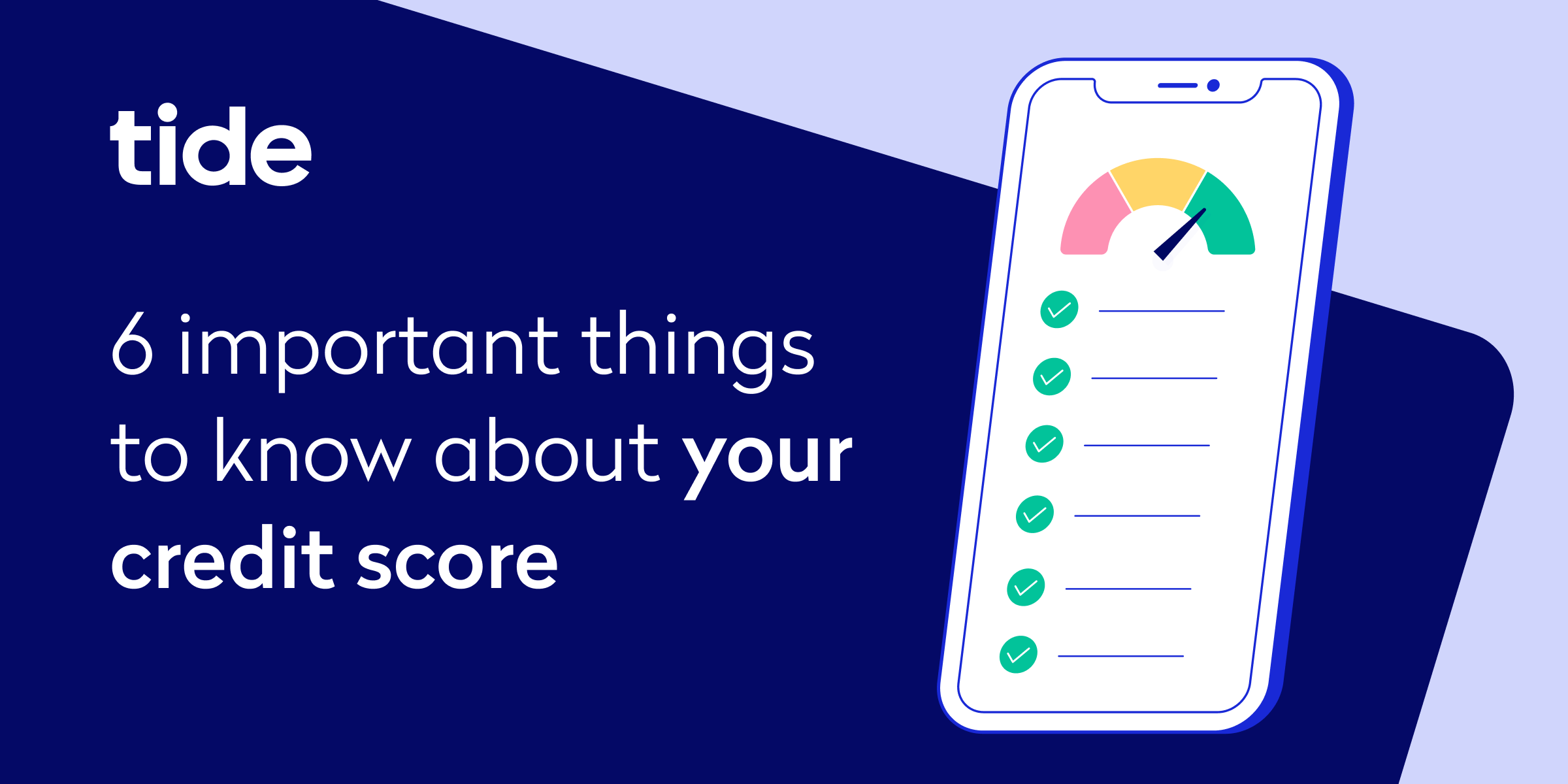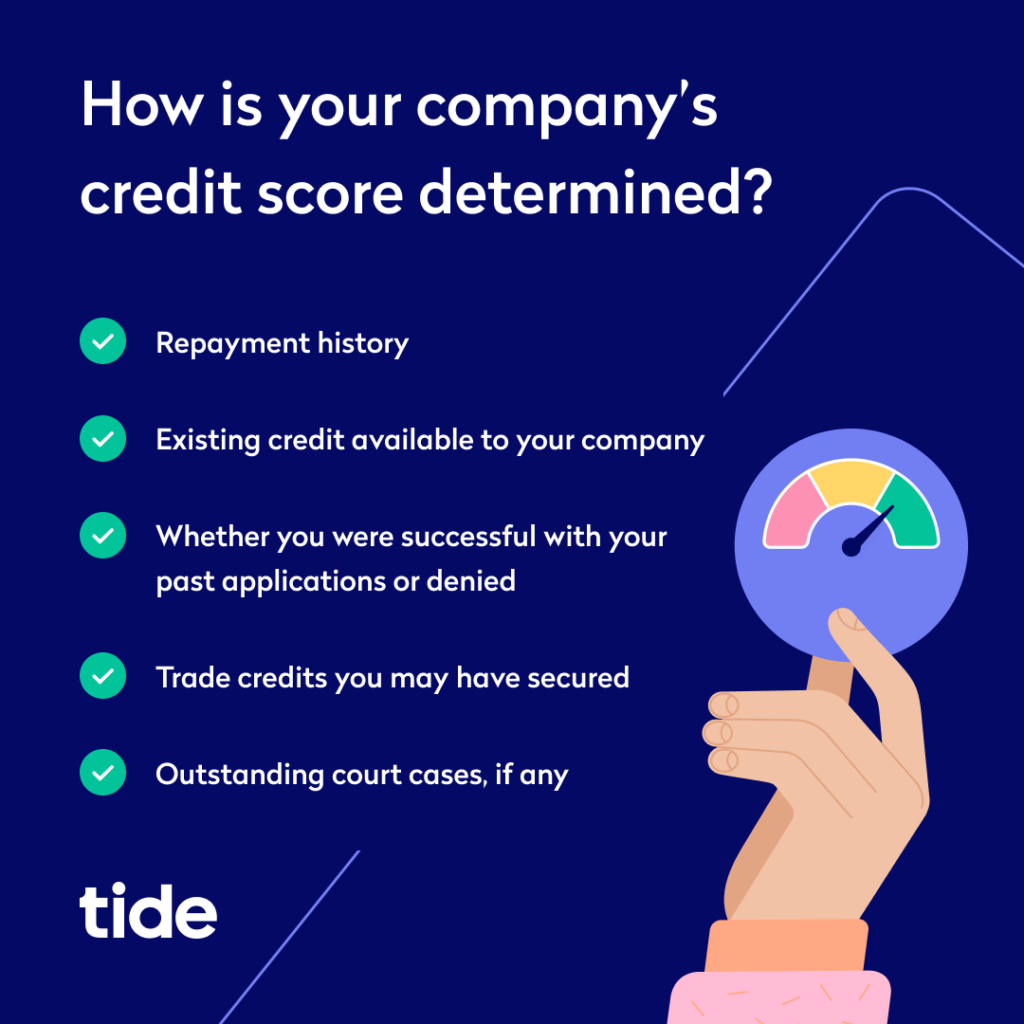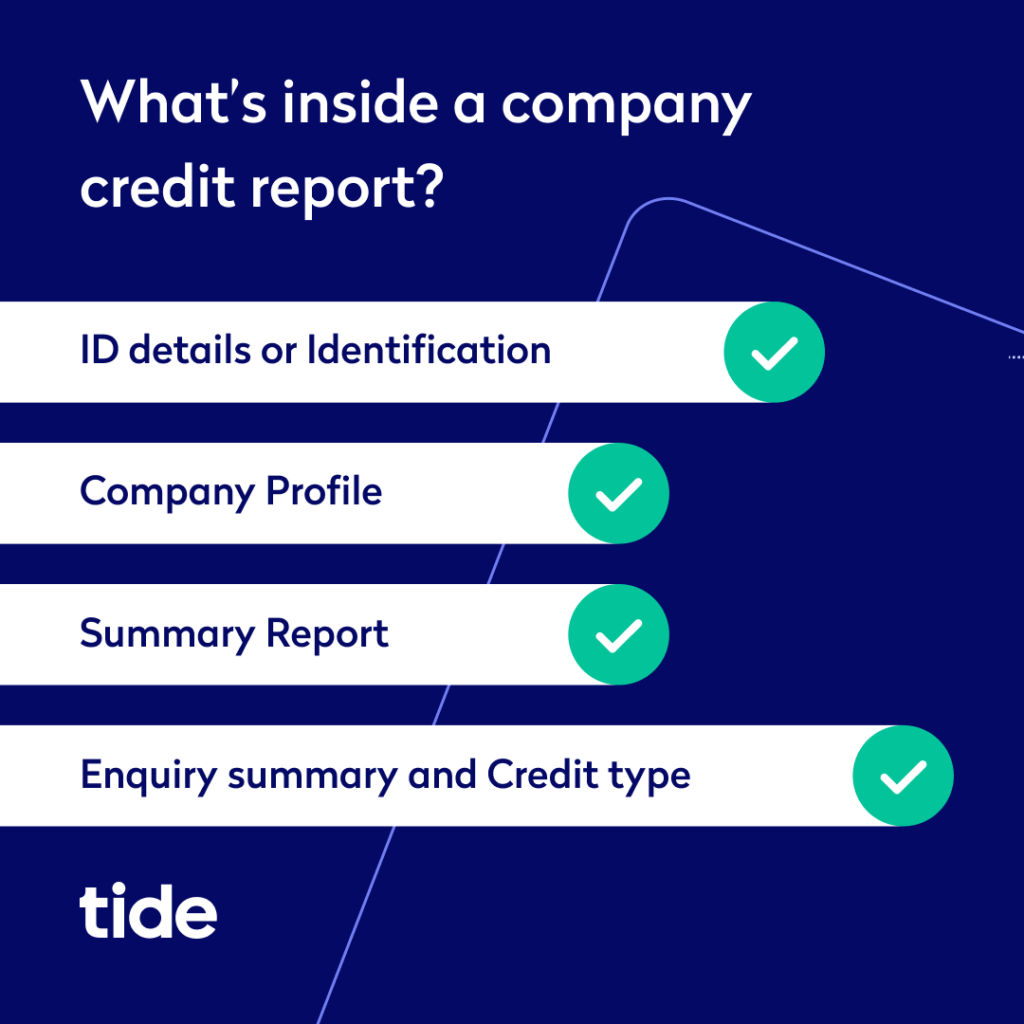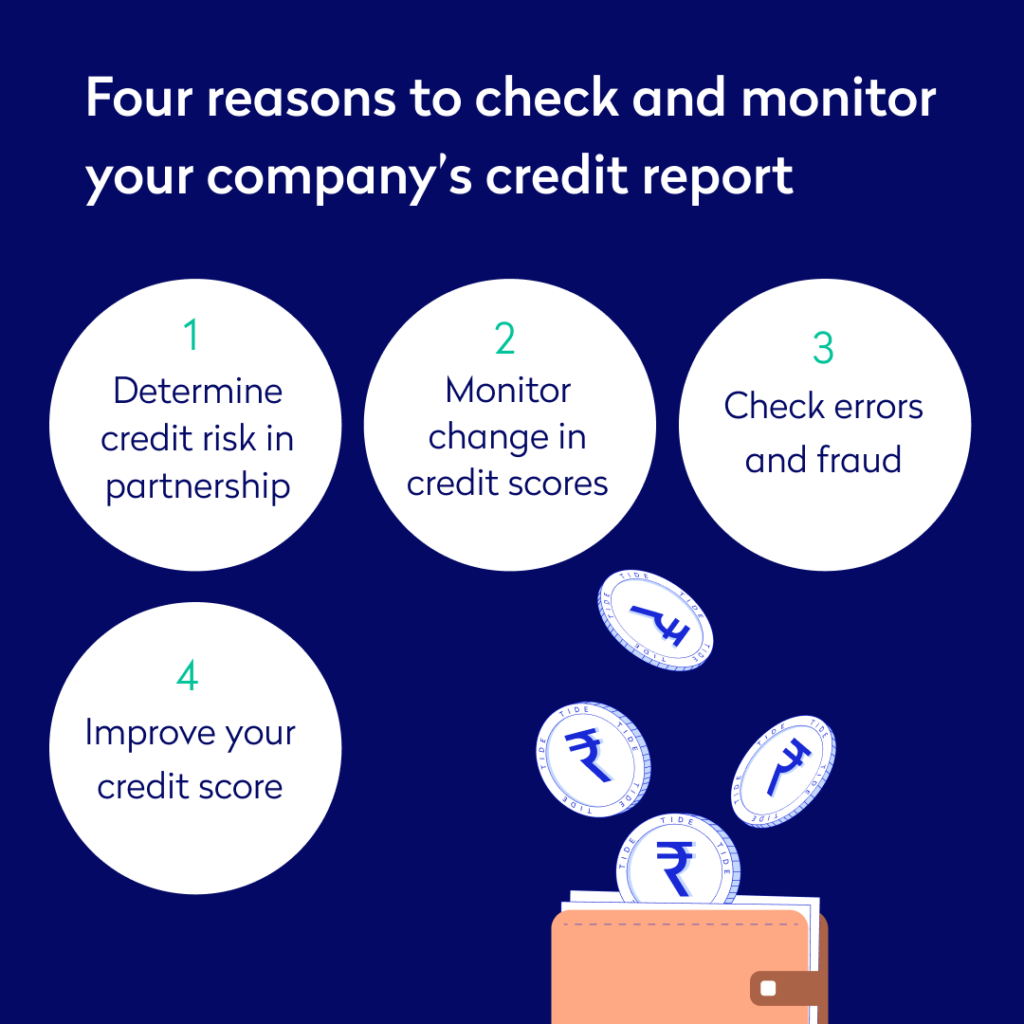
6 important things to know about company credit score

It is critical for small business owners to know how their company’s credit score can impact their financial decisions❗️. However, not all entrepreneurs are as aware of the effect of their company’s credit score on their business🤷. It is important to understand how credit score can impact your company’s prospects to access business loans etc.
At Tide, we believe in helping small businesses save time and money. Therefore, we have created a series of articles that focus on company credit score. 🤝
In this article, we’ll discuss 6 key aspects that you should know about your company credit score. 👇
Table of contents
- What is a company credit score?
- Why is your company’s credit score important?
- How is your company’s credit score determined?
- How to check the credit score of your company?
- What’s inside a company credit report?
- Four reasons to check and monitor your company credit report
- Wrapping Up
What is a company credit score?
A company’s credit score is a measure of its creditworthiness. It determines if the company can be provided with a loan. It is calculated by credit bureaus, based on the company’s credit history and repayments with various lenders. 🧐
A lender considers a business’s revenue, profits, assets and liabilities, etc to calculate their creditworthiness. Business credit scores such as CMR (CIBIL MSME* Rank), CRISIL ratings are referred to in case of loan applications concerning high loan amounts like ₹1 crore and above.
*MSME – Micro, small & Medium Enterprise
Why is your company’s credit score important?
A good credit score is an indication to lenders that you’re very likely to repay the loan on time. It indicates that your payments will not be delayed or missed. Keeping a good company credit score could help you to get loans easily and that too at competitive interest rates. 👏
A poor credit score could be the result of a company missing loan repayments, or if it fails several credit applications. If you have a poor credit score, you may struggle to secure finance for your business. Even if you get credit, you’ll likely only be offered high interest rates and lower loan amounts.⛔️
The higher the credit score is, the better a company’s performance and creditworthiness, which indicates low risk to potential lenders. 🙆
| ℹ️ FYI: According to our research, if a company’s credit score is above 700 then they can secure a business loan easily, that too without collateral. |
How is your company’s credit score determined? 🤔
Your company’s credit score is calculated based on certain criteria defined by a Credit Rating Agency (CRA). The CRA evaluates your financial history and tracks your record of paying back previous business loans and borrowings. It also checks if you pay your payments on time and if you have missed any.
Here is a list of the parameters a CRA can evaluate:

- Repayment history
- Existing credit available to your company
- Whether you were successful with your past applications or denied
- Trade credits you may have secured
- Outstanding court cases, if any
How to check your credit score? 🔎
To view the credit score of your company, you will need to contact a business credit reporting company for a credit report. Some of the most prominent CRAs in India are 👉 – Transunion CIBIL, Credit Rating Information Services of India Limited (CRISIL), Equifax, Experian, CRIF Highmark, ICRA Limited, Credit Analysis and Research limited (CARE), etc.
The information held in your company credit file comes from several sources, including a company’s financial statements, type of debt, history of lending and borrowing history, ability to repay, past credit repayment behaviour, etc. 👀
| 💡Pro Tip: It’s important to note that your credit rating might vary from agency to agency. This is because each credit bureau relies on its own distinct methods and scoring systems. Lenders will use different credit reporting companies when they check your credit score. |
What’s inside a business credit report? 🙋
A company CIR (Credit Information Report) offers important information about your business’s creditworthiness. Here is what you can expect to see in a company credit report:

- ID details or Identification – This is identified by a unique serial number.
- Company Profile – This section has all company information such as the name, contact details, address, and the company’s unique Data Universal Numbering System Number (DUNS)
- Summary Report – This provides the details of the company’s credit history, including the type and amount of loans, the outstanding balance, etc
- Enquiry summary and Credit type: This part explains the type of loans availed. It indicates if you are approaching too many lenders and are trying to raise an overly high amount of credit
The parameters above provide the following information – 👇
- Business data
- Personal information
- Risk scores
- Previous loan repayment history
- Information on the company financial status
- History of payment defaults
Four reasons to check and monitor your company’s credit report 💡
We recommend that you regularly monitor your company’s credit score so that you can make informed financial decisions. This is especially important if you are trying to improve your score. On the other hand, if you have a good credit score, we advise you to keep a close eye on your report. This will help you avoid a performance dip.
Let’s explore the reasons to monitor your company’s credit score in depth.

Determine credit risk in partnership ⚠️
To actively avoid bad credit decisions, we recommend, assessing the financial risk of extending credit to a particular company. You can start with understanding the financial background of a business, including payment defaults, bankruptcies, etc. If you find that the company in question is at financial risk, you’ll be able to make a smarter decision about the pros and cons of moving forward with a potential partnership.
Monitor change in credit scores 🧐
By monitoring your report, you can stay updated about the changes in your company’s credit score. As mentioned above, this will help you in making smarter cash flow decisions, and keep your interest low and credit score high. Tracking your credit scoring also alerts you if someone decides to request and view your credit information before working with you.
| 💡Pro Tip: If a potential partner asks for your credit score, it’s often a good sign because it shows they care about their potential business partners’ financial health, too. |
Check errors and fraud 🔍
You can monitor your company credit report for potential errors or inaccuracies. This way you can track and report any fraud as soon as it occurs.
Get suggestions to improve your credit score ⚡️
The summary of the credit reports indicate what might be bringing your credit score down. By analysing it, learn what to prioritise and address to improve your score.
| 💡 Pro Tip: Keeping an account of your company credit score will help you manage and improve your business credit. This way you can obtain the funding you need to expand your business. |
Wrapping up
Your business credit score is an important way of checking how much financial risk your business carries. Building a favourable business credit score will definitely take time. But, it will ensure you’re able to secure important resources such as lines of credits, insurance and business loans. 👍
This is the first blog in our series of articles focused on company credit score. In the next blog we have shared 10 useful tips for you to improve your company’s credit score.
Disclaimer – Tide and its affiliates do not provide credit related advice. This material has been prepared for informational purposes only, and is not intended to provide, and should not be relied on for improving credit score. You should consult your own credit experts and advisors for all credit related purposes. © Copyright 2022. All rights reserved. Tide Platform Private Limited.



